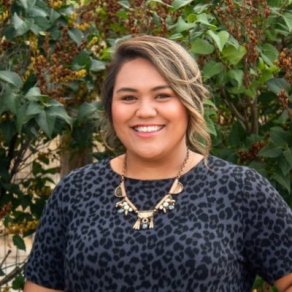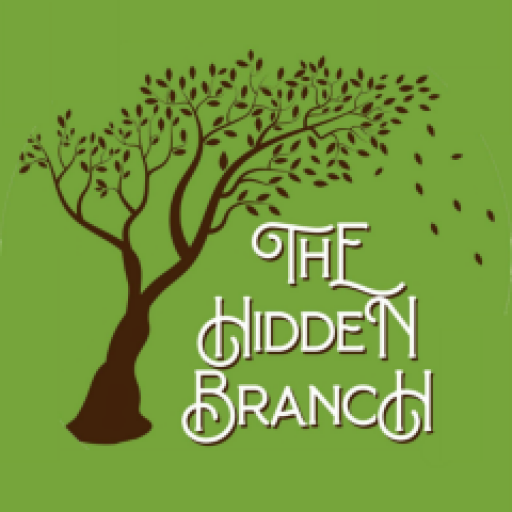‘Oral history’ is a widely-used term that we are struggling to understand. On one hand, online searches for this term bring up synonyms such as ‘myth’, ‘folklore’, and ‘fairy tale’. On the other hand, Indigenous cultures rely on ‘oral history’ for the generational exchange of information. In the field of genealogy especially, a majority of researchers verify their research with vital sources to meet a standard of proof. Often, any conclusions reached without sufficient evidence will be rejected. This leaves little place for genealogists with ancestral information outside of the written medium.

To understand more about the importance of oral history and its current and future place in genealogical research, I reached out to Miyamoto Loretta Jensen, a prominent, young, Indigenous genealogist who specialises in Polynesian genealogy.
Miya describes her work for the genealogy community as “barrier-breaking, fresh and authentic”, always trying to “”keep it real” whenever talking about complex issues”. She has certainly, over the past few years, come to my attention as an important role model for both Indigenous and non-Indigenous genealogists.
What does the term ‘oral history’ mean to you?
Oral history is family history to me. Oral history really is everywhere, if you really think about it. The movement, motion, and expression of emotions via the body and voice are all forms of oral history. My ancestors transmitted their power, stories, families, and lives through the spoken word way before the written language was ever introduced to them. It was once said that my ancestors knew to etch their histories in the minds of their posterity and people because the ocean can wipe away anything. When I listen to oral histories, I feel something move within me. I connect deeply and intimately more than I ever could just reading a piece of paper. Oral history is the giving and receiving of power. Period. I would also say, too, that oral history is literally everywhere. We would die if we didn’t practice oral histories. From news reports to songs being sung on the radio to lectures to talking with friends and family, it is literally everywhere. We would not progress as a society and people if we didn’t have oral histories.
Is oral history important to you, and why?
It matters because this was how my ancestors lived and breathed. In order to understand who they were, I need to take the time to know why oral history was important to them. And I can’t help my own people if I don’t know how they functioned.
How has oral history influenced your understanding of your own history, and what role has oral history played in your own/family/community history?
I used to be angry that oral history was my ancestors’ way of preserving their lives. I used to think that paper was the only thing that mattered. I’ve since then have “come to myself” and decolonized my methodology. I needed to understand my ancestors from their perspective and not impose myself and today’s standards on them. It has changed my life since I have done this! I know now that oral histories were taken seriously. There was a protocol and strictness to learning the oral genealogies of our families. In other words, these were not taken lightly because of the functions oral histories had in society. It determined everything in one’s life including land ownership, marriage regulation, feud support, etc. I can’t relate to these perspectives as much because my genealogy has not determined my life, but I can understand now why they were vital to one’s survival.
Upon doing a google search of the term ‘oral history’, the synonyms that are associated with it include ‘mythology’, ‘fairy tale’, and ‘folklore’. Does this association damage our perception of credibility in oral history?
If you are thinking in terms of Polynesian genealogy, then yes. Our oral histories were crafted in poetry and were riddled with metaphors and symbolism. These stories were actual histories, but portrayed in ways that reflect the importance of ancestors. So, I personally reject the idea that oral histories are just made up stories. They all contain treasures of truth within them. It is only a matter of language skills and internalizing ancestral perspectives and history that unlocks them.
Why do you think oral histories are perceived as untrustworthy sources of information in Western societies?
Great question. I have thought, too, about why paper has become such a vital part of our Western societies. Many indigenous societies believed that their word was their bond. Somewhere down the line, that practice was destroyed and no one could be trusted except through the signing and writing down of paper. I understand that paper does allow us to remember things that we may have forgotten throughout time, but paper holds so much value because we do not put an importance on practicing remembering. To me, that is why Western societies don’t trust oral histories as much. Their faith in remembering comes from paper, not from themselves or their families.
How can we change the way oral histories are perceived by some societies in the modern world?
I think this has to start with each of us. We need to commit to practicing remembering. That can come in so many different ways and forms. What can be extremely meaningful for us is looking to our ancestors and learning how they remembered, then practicing those rituals, sacraments, and skills ourselves.
How do you contribute to continuing the legacy of oral history in your own life, and what role does it play going forward?
I enjoy listening and watching my own cultures in practice via songs, dances, and chants. Because of our unique challenges with COVID-19, I have only witnessed these practices via video. They still carry so much power within them and I am moved every time. I also have been interviewing the elders in my family more. I have called my grandmothers more than I ever have before during quarantine. I am eager to record their stories to make sure they are preserved before anything happens to them. At night, I enjoy reciting these stories to my four year old son. Even though he doesn’t understand much, I know these stories will come back to him in times of need as he experiences life himself. All in all, I am trying my best.
History in academia has become almost ‘scientific’ (in my personal opinion). It is focused on finding the truth through evidence, a common pattern in a white Eurocentric setting. To me, history is the study of human thought and memory, which never conforms to a particular structure. Has oral history had a voice in historical academic settings, if not, how can we give it a voice?
Such a good thought and question! Oral histories and the practice of transmitting oral history was heavily disregarded in the past. With the introduction of Christianity and missionaries to Oceania, much of the sharing of gospel involved destroying indigenous cultural practices because there was no room for embracing what was outside the norm of Eurocentric Christian culture. The effects of this are seen today when my own people struggle with researching their ancestors. Many still believe that it is not possible to research their ancestors pre 1850 because there are no more written records then. This mentality calls for decolonization in our genealogy industry. To save our people, we have to shift our mindsets and perspectives. Academia is extremely biased and full of Western perspective because they are used to being the loudest and being respected for their thoughts. Many before me in Oceania have put their feet down and said no more to these biases. They are desperate to share our histories from our own people. To give these individuals, myself included, a voice, just listen to us. We have so many wonderful platforms to speak up and speak out on these issues and many of us are. Take the time to listen to what we are saying and check your social biases. All of us have them. To end the social biases, we all first need to check ourselves. Please choose to not get so defensive when a call of correction comes your way.
In a world that is progressively becoming more scientific, we, as the future of genealogy, need to ensure that other non-written sources are being validated and not ignored. It is not only a way to ensure Indigenous genealogists and their genealogies are accepted into the community, but the process is also a step towards decolonizing our own mindsets.
I would like to extend a big thank you to Miya, who graciously accepted my request to interview her and responded with the most profound answers. I hope the readers of this interview take her words into their future research to create an awareness and a validated space for Indigenous histories. Miya really epitomizes the next generation of genealogy and is one to keep an eye on!
If you wish to follow Miya,
Twitter: The Polynesian Genealogist (@miyajensen)
Instagram: Miyamoto Loretta Jensen (@thepolynesiangenealogist)
